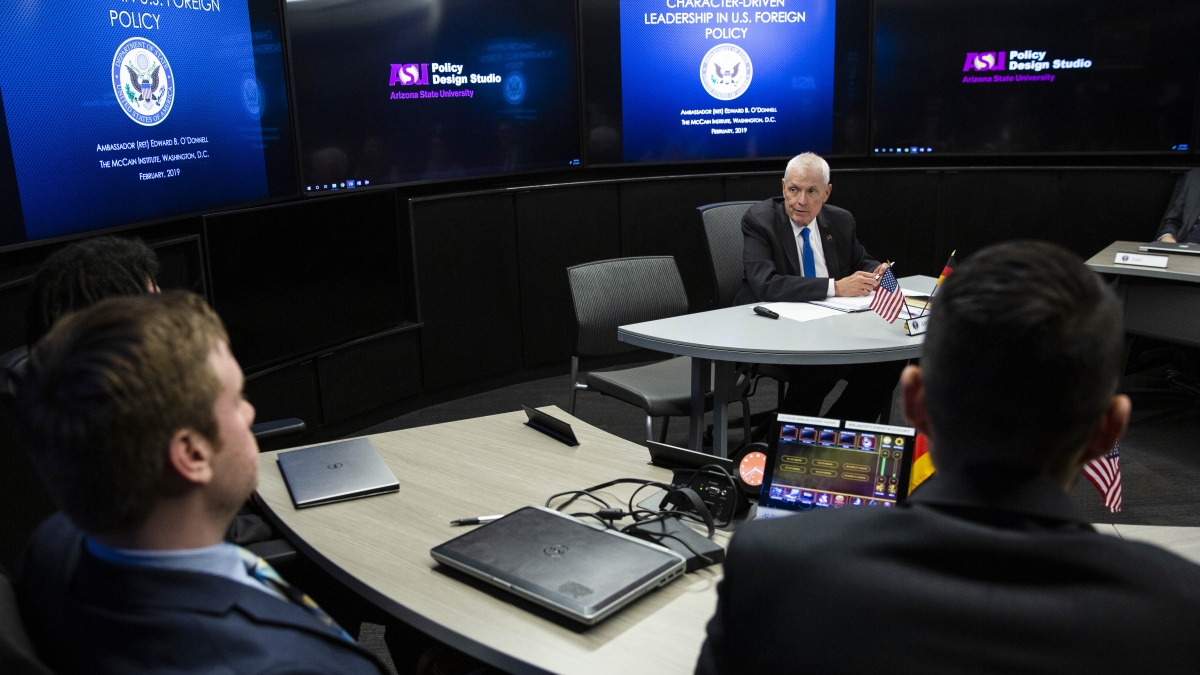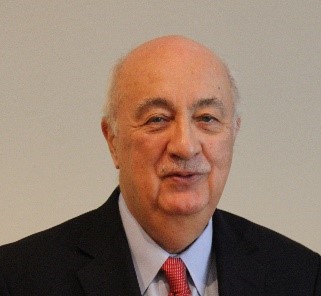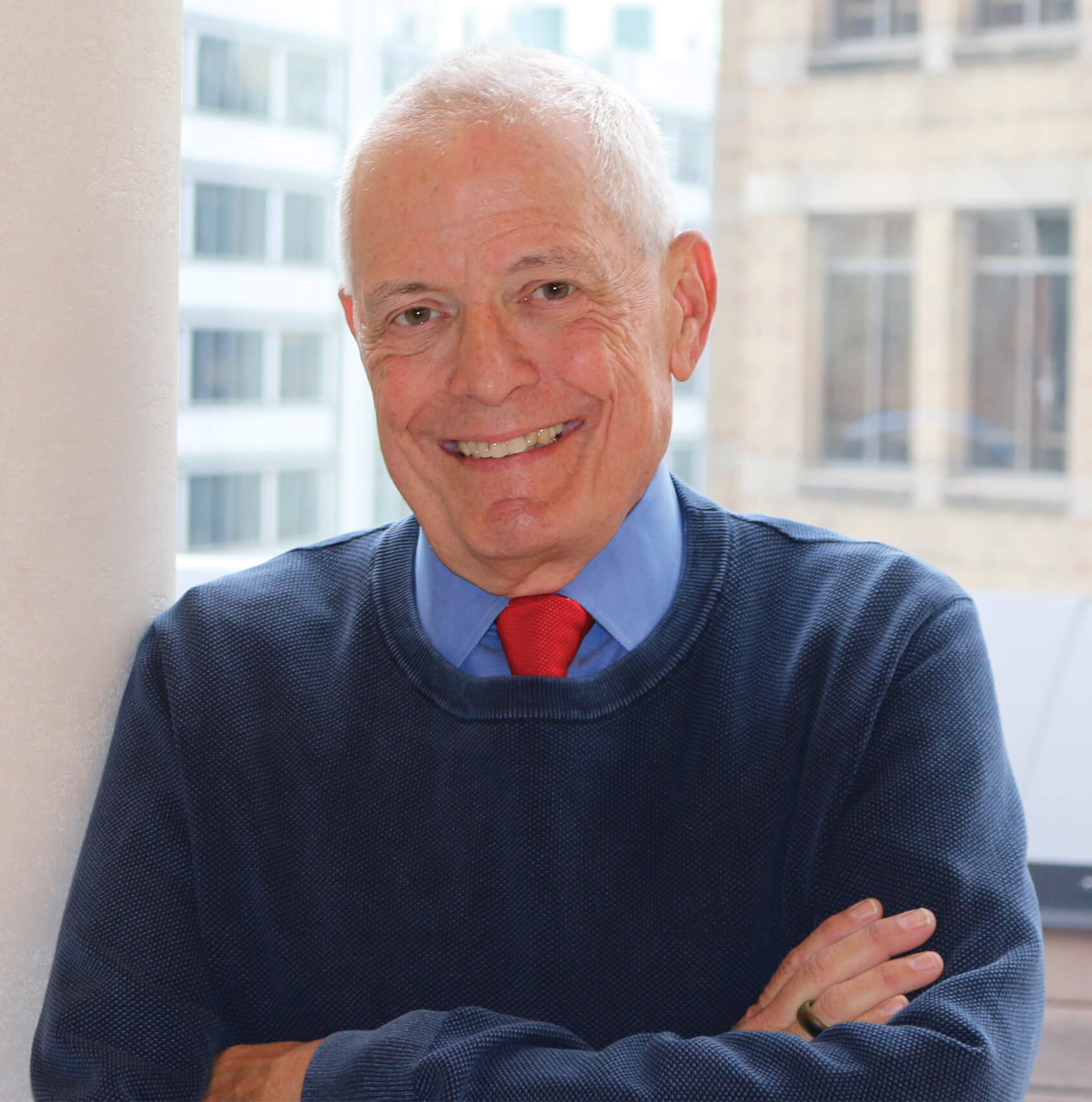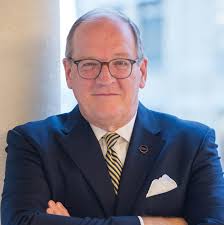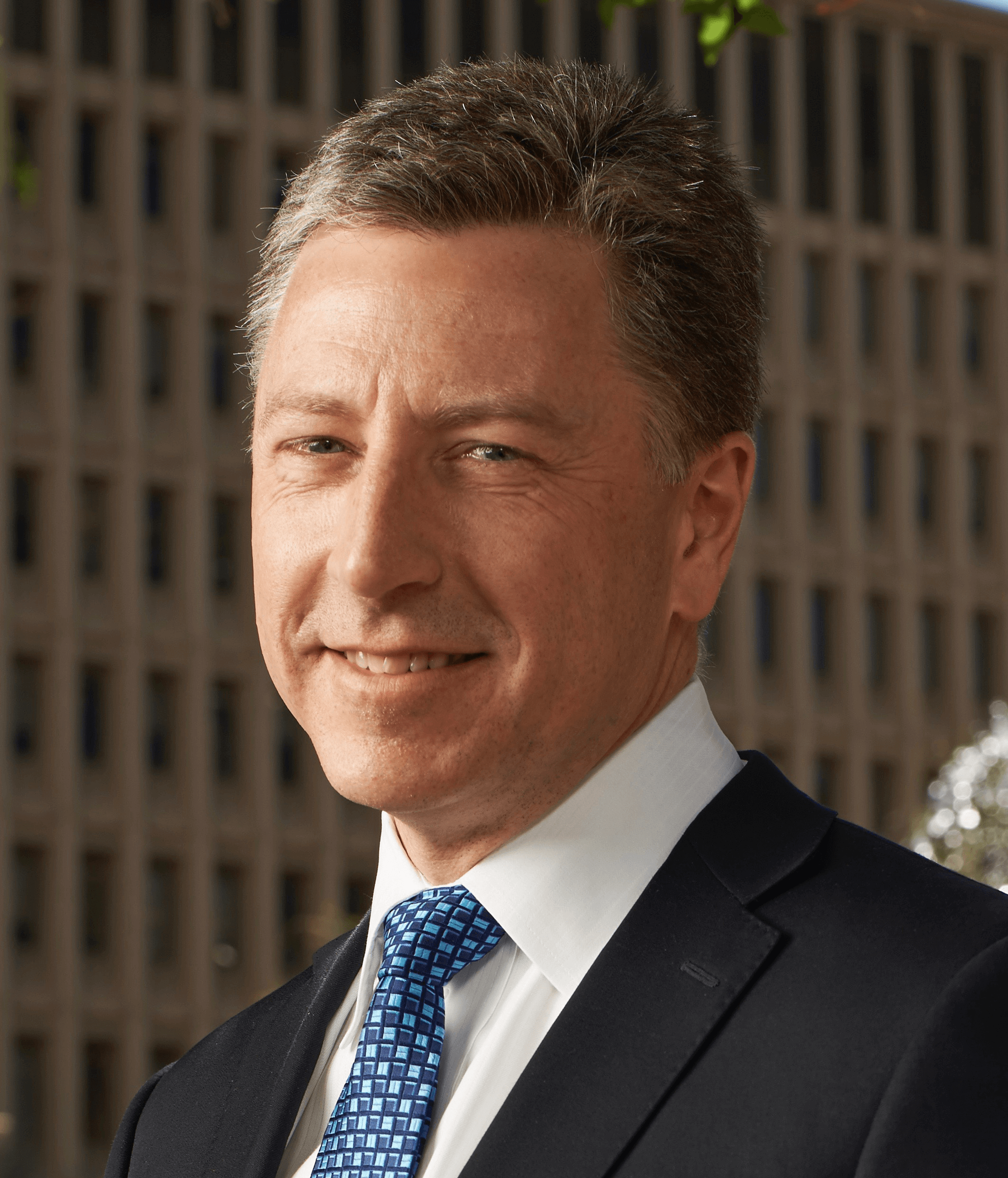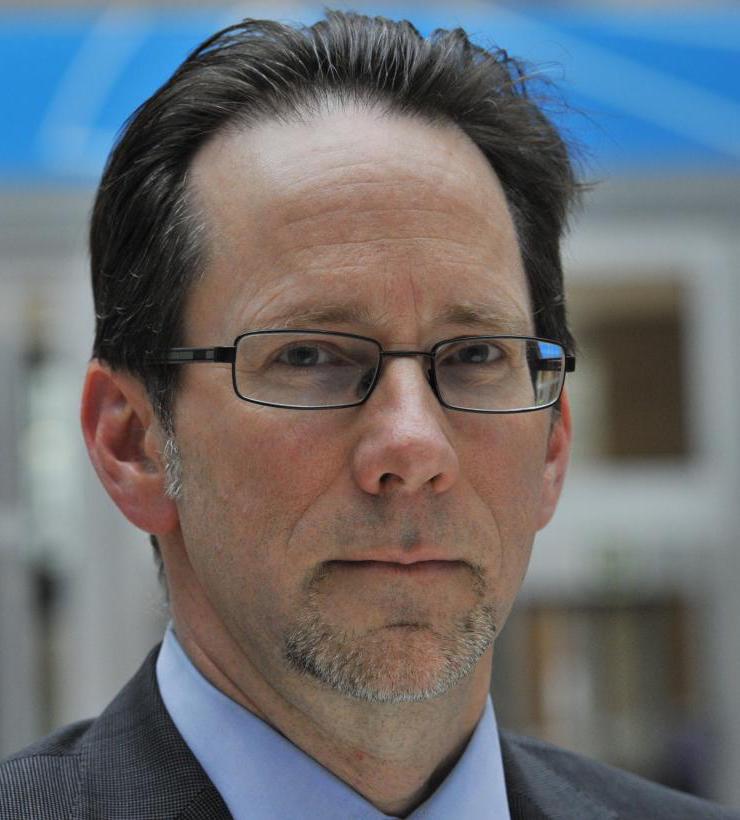Arizona State University students have access to some of the greatest minds working in academia today.
They include Pulitzer Prize winners, Nobel laureates, MacArthur Fellows and Regents Professors, among other talented scholars.
And at the ASU Barrett and O'Connor Washington Center, they have the opportunity to learn from and be mentored by five current and former U.S. ambassadors.
ASU Now asked those five ambassadors, John F. Maisto, Edward B. O’Donnell, Michael C. Polt, Kurt Volker and Clint Williamson, to impart their wisdom to students.
John F. Maisto
John F. Maisto is a consultant on global affairs at Arizona State University and is an advisory board member of ASU’s Center for Violence Prevention and Community Safety. He served as the U.S. ambassador to Venezuela from 1997 to 2000.
Q: What is the advice you give students upon entering your program?
A: ASU, now prominently in Washington, offers so many opportunities for incoming students, particularly those who spend some time in the nation's capital. Here’s some pointers:
- Listen a lot, and engage with whomever you meet in the ASU world, and in the ASU-connected world.
- Ask questions and do not fear making mistakes. You are students, and should.
- Become acquainted with the fascinating world of national government. Visit the government buildings as part of your engagement efforts, with ASU personnel when possible.
- Go to the Capitol, and attend Senate or House committee meetings. Visit your congressperson's office, meet staff people.
- Visit the departments in the executive branch. Take advantage of the public tours and then go from there. Look for opportunities to accompany ASU people.
- Sign up for and go to think-tank events. These events always have student attendees.
- Schedule time with mentors. They are busy but will make time.
- Soak in the many historic and cultural opportunities Washington offers, many of which are free.
Q: What advice do you give to students as they collect their diplomas and leave ASU to embark on their careers?
A: For students as they depart ASU, particularly those who will remain in touch with ASU in Washington, I say:
- Stay close to ASU in D.C. as it is a unique resource for you due to its personnel there, those who come and go, and the widely connected ASU world.
- Get cards printed up and get into card-exchange as you develop contacts.
- Of course, keep an open mind as you put together your plans for the near/medium term.
- Make sure your CV is in the best shape, and look for an ASU mentor to review it.
- Look for recent ASU grads who have experience in areas of interest to you.
- Take advantage of all Washington, D.C., has to offer.
Edward B. O'Donnell
Edward B. O’Donnell leads the ASU course “Diplomacy in Action, the Embassy Country Team” at the McCain Institute and is developing additional educational programs. He retired from the U.S. Foreign Service in 2007, after 33 years in Latin America, German-speaking Europe and other positions in Washington, D.C.
Q: What is the advice you give students upon entering your program?
A: Prepare yourselves for your eventual career and consider “serving a cause greater than yourself” in the tradition of Sen. McCain, and prepare to be a “character-driven leader.” That includes having a vision of what you want to do in your life to make a difference, and also to have the skills that will make you valuable to your future supervisors and colleagues, such as critical thinking, the ability to express your views through succinct and persuasive writing and oral presentations. Also prepare yourself to be proactive in contributing to your team, expressing clearly how you can help achieve the overall mission.
Q: What advice do you give to students as they collect their diplomas and leave ASU to embark on their careers?
A: Broaden your horizons to include all possible interests in a future career and activities, and be open to opportunities you did not anticipate. Decide what issues you are passionate about and pursue those areas where you can make a difference in the lives of others. Start with the small steps toward your eventual goal and be patient, knowing that building your education, experience and skills will lead to a place in the future when you will have fulfillment that you have made a difference in the lives of others and contributed to a cause greater than yourself.
Michael C. Polt
Michael C. Polt serves as senior director at the McCain Institute for International Leadership, after a 35-year diplomatic career including an assignment as ambassador to the Republic of Estonia.
Q: What is the advice you give students upon entering ASU?
A: The first advice I give students when they come to the Washington, D.C., (center) is that I want to introduce them to the world of foreign affairs, foreign development policy and implementation. I try to encourage them to have a career in international service, be it in the diplomatic service, be it in the national security sphere or other areas of U.S. government, or any other international endeavor. It could be in the private or nonprofit sector. I tell them as students they have a stake in international leadership in whatever area they find within the scope of their interests. We will show you and teach you and we will develop and engage you on issues of international politics, issues and leadership in order for you to get a close-up practitioner's picture as to how foreign policy and international affairs are developed, led, managed and implemented in the field. Despite all of the cynicism in our country today in regard to domestic and international politics, this is an important time for young people to enter this profession because they can make a difference.
Q: What advice do you give to students as they collect their diplomas and leave ASU to embark on their careers?
A: The first thing is I have to comment on the quality of the ASU student. Most come to us with very little international experience. Some of them with no experience outside the state of Arizona. We’re so impressed by how much they grow in that semester between the time they come to us and engage with us in those 15 weeks, and then come out the other end making most impressive presentations on pretty complex international diplomatic and foreign affairs issues.
Our advice to them is now go forth, engage and actually do these things. Don’t just talk the talk but walk the walk. Join the foreign service. Join an international organization. Join the intelligence community. Join the Defense Department. Join the military. Join whatever you find to be of the most interest to you, but do it with the intent of leading the international sphere. We’ve already chalked up some pretty successful people getting placed in impressive scholarships, impressive fellowships, moving forward in their careers in the international affairs arena. We urge them to stay in contact with us to make sure to give them the right recommendations, to give them the right connections, to help them build their professional networks in the international arena so they can be successful in whatever endeavor they choose.
Kurt Volker
Kurt Volker serves as executive director of the McCain Institute for International Leadership at ASU. His expertise is in U.S. foreign and national security policy with some 30 years of experience in a variety of government, academic and private sector capacities. In July 2017, Volker was appointed U.S. special representative for Ukraine negotiations.
Q: What is the advice you give students upon entering your program?
A: I recommend taking a page out of the late, great Sen. John McCain’s playbook. Have courage, recognize that character truly is destiny. Be willing to work across divides, and extend human dignity to all. Do that and you’ll worry less about being liked and the perceived parameters of conventional success. Instead you’ll thrive across whole new domains with the confidence, determination and savvy that grows from associating with causes larger than self.
Q: What advice do you give to students as they collect their diplomas and leave ASU to embark on their careers?
Volker: Start doing it, whatever “it” looks like for your career aspirations. You are not going to get an invitation, a tap on the shoulder or a hand-delivered career path. The professional work environment is welcoming, wherever you find yourself people genuinely want to help you advance professionally, but they aren’t going to look for you or make the first move. Knock on doors, make yourself known, offer up your services, expertise and interest, however tangential. No one is against you, but you have to go for it. The way to end up in the desirable positions you see others in is to recognize they likely got there by jumping in at any available capacity, with opportunities and relationships propelling them from there.
Clint Williamson
Clint Williamson is the senior director for law and national security at the McCain Institute and a Professor of Practice at ASU’s Sandra Day O’Connor College of Law. He served as U.S. ambassador-at-large for war crimes issues from 2006 to 2009.
Q: What is the advice you give students upon entering your program?
A: The big thing I always try to get across to students is just to follow their interests. Law school in particular tends to have a herd mentality, which I think is worse than in most other academic settings. Law students tell each other, “You’ve got to take this course,” or “You’ve got to work as a clerk at this law firm.” The reality is that the field of law is so diverse that you don’t have to follow one well-trodden path. You can actually go out and pursue the things that are your passion. A lot of times that means not going to work for a large law firm or perhaps working for a government agency, or working for an NGO or the United Nations, or doing work overseas in post-conflict settings. I tell students not to try and map out what their career will be while they’re in law school or create this step-by-step process to get where they think they should go because there’s no guarantee that’s going to work out. That said, they should pursue the things they’re interested in because they have an equal chance that that’s going to be something that will turn out well at the end of the road. They should love what they’re doing. They should be open to opportunities that are out there, again, even if it does not sound like a conventional path for a lawyer. It should be something they’re interested where they believe they can make a positive difference, and do it!
Q: What advice do you give to students as they collect their diplomas and leave ASU to embark on their careers?
A: I tell them to be patient. A lot of the jobs that they are interested in and what we’re trying to prepare them for are incredibly competitive. A lot of people are fighting to get into these fields because the topics are sexy and interesting, like counterterrorism or war crimes. It’s interesting to a lot of people and it attracts a lot of applicants. The best thing they can do is to look at how they can get some practical experience. Don’t try to aim for the top right away. Go out and get your hands dirty. Go out and volunteer for a U.S. peacekeeping mission with an NGO that might not be the best-paying job but can offer lots of field experience. I think they have a much better chance of having doors open to them if they do something like that. They should get real world experience and use that as an entrée to bigger and better things. In the long run, this strategy pays off.
Top photo: Ambassador Edward B. O'Donnell leads students in politics and law through a practice of German-American relations concerning the Boeing 737 MAX scandal during 'Policy Design Studio 484 - Diplomacy in Action, the Embassy Country Team' in the ASU in D.C. Decision Theater on March 13, 2019. Photo by Deanna Dent/ASU Now
More Sun Devil community

ASU first-gen college student is a leader in sustainability, social justice
Born and raised in Phoenix in a single-parent household, Mauricio Juarez Leon faced struggles growing up that included poverty, malnutrition, domestic abuse and limited resource access. And at the…

These real-life heroes found educational support through ASU Online
When “God Bless America” played at Dani Bermudez’s naturalization ceremony, the moment gave her chills and cemented her resolve to one day serve in the military.The Colombia native enlisted in the…

Sun Devils in the sky
“Today was probably one of the most rewarding days I’ve had at ASU."That was the sentiment given by Andrew Vandertoorn, a C-17 evaluator pilot, first officer and 2002 Arizona State University…
